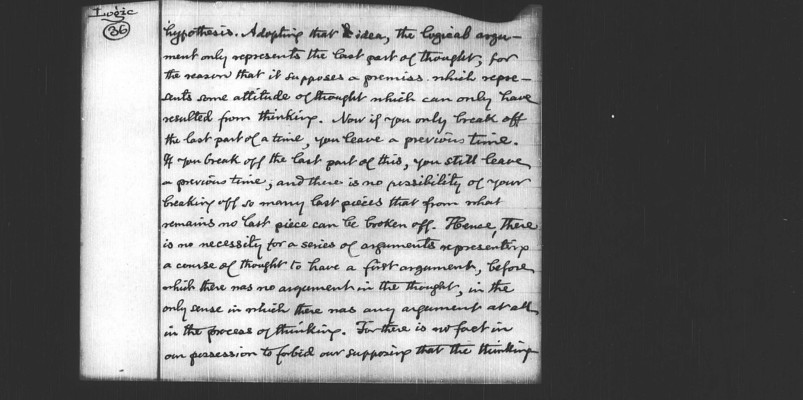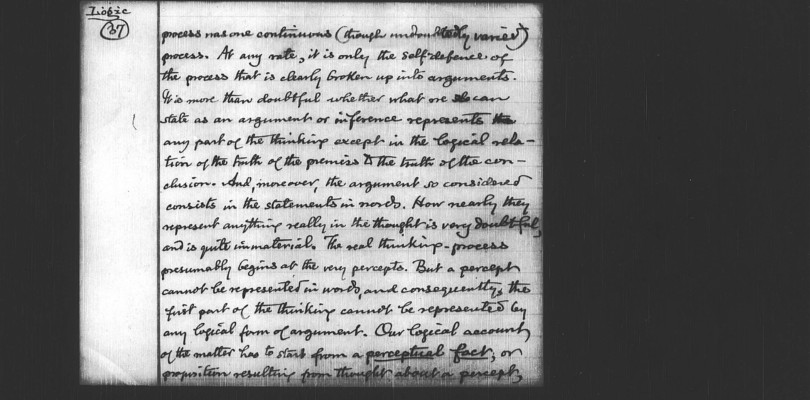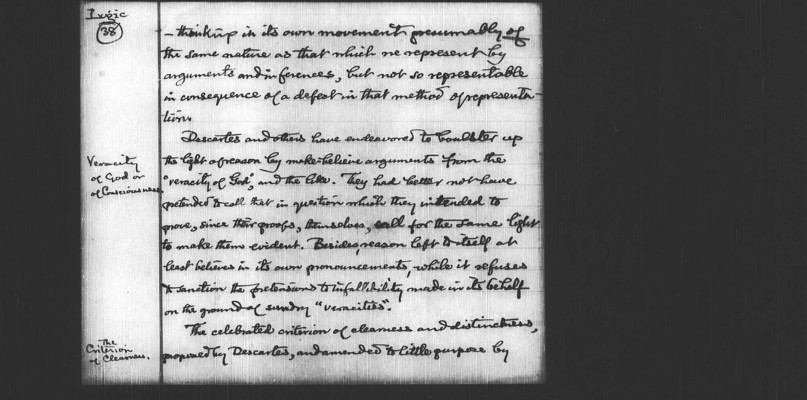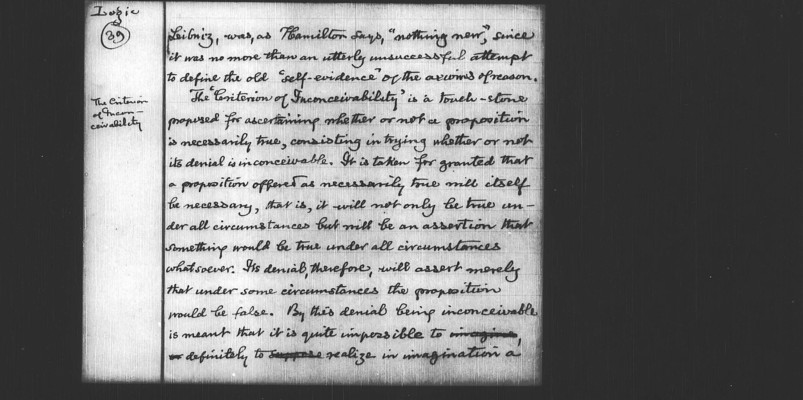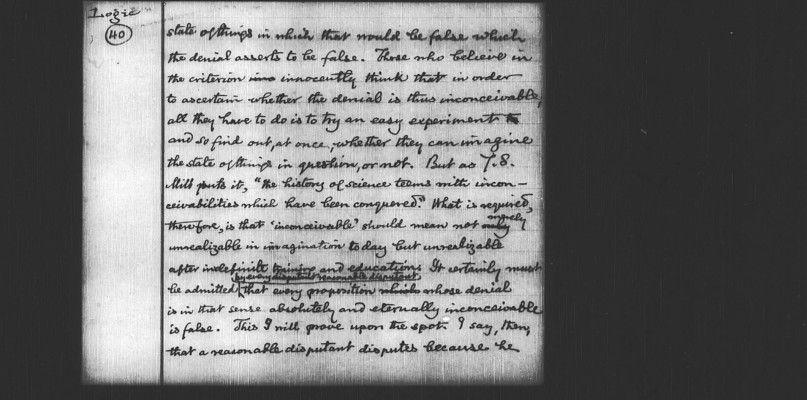Pages
36
Logic 36
hypothesis. Adopting that idea the logical argument only represents the last past of thought for the reason that it supposes a premiss which represents some attitude of thought which can only have resulted from thinking. Now if you only break off the last part of time you leave a previous time. If you break off the last part of this you still leave a previous time and there is no possibility of your breaking off so many last pieces that from what remains no last piece can be broken off. Hence there is no necessity for a series of arguments representing a course of thought to have a first argument before which there was no argument in the thought in the only sense in which there waa any argument at all in the process of thinking. For there is no fact in our possession to forbid our supposing that the thinking
37
Logic 37
process was one continuous (though undoubtedly varied) procss. At any rate it is only the self-defence of the process that is clearly broken up into arguments. It is more than doubtful whether what we can state as an argument or inference represents any part of the thinking exceot in the logical relation of the truth of the premiss to the truth of the conclusion. And moreover the argument so considered consists in the statements in words. How nearly they represent anything really in the thought is very doubtfully and quite immaterial. The real thinking process presumably begins at the very percepts. But a percept cannot be represented in words and consequently the first part of the thinking cannot be represented by any logical form of argument. Our logical accounts of the matter has to stand from a perceptual fact or proposition resulting from thought about percept
38
Logic 38 Veracity of God or of Consciousness. The Criterion of Clearness
thinking in its own movement presumably of the same nature as that we represent by arguments and inferences but not so representable in consequence of a defeat in that method of representation.
Descartes and others have endeavored to [?on?bter] up the light of reason by make-believe arguments from the "veracity of God" and the like. They had better not have pretended to call that in question which they intended to prove since their proofs themselves call for the sme light to make them evident. Besides reason left is itself at least believes in its own pronouncements while it refuses to sanction the pretensions to infallibility made in its behalf on the groundof sundry "veracities".
The celebrated criterion of clearness and distinctness proposed by Descartes and amended to little purpose by
39
Logic 39 The criterion of inconceivability
Leibniz was as Hamilton says "nothing new" since it was no more than an utterly unsucessful attempt to define the old 'self-evidence' of the axions of reason.
The 'Criterion of Inconceivability' is a touch-stone proposed for ascertaining whether or not a proposition is necessarily true consisting in trying whether or not its denial is inconceivable. It is taken for granted that a proposition offered as necessarily true will itself be necessary that is it will not only be true under all circumstances but will be an assertion that something would be true under all circumstances whatsoever. Its denial therefore will assert merely that under some circumstances the proposition would be false. By this denial being inconceivable is meant that it is quite impossible to definitely to realize in imagination a
40
Logic 40
state of things in which that would be false which the denial asserts to be false. Those who believe in the criterion innocently think that in order to ascertain whether the denial is thus inconceivable all they have to do is to try an easy experiment and so find out at once whether they can imagine the state of things in question or not. But as T.S. still puts it, "the history of science teems with inconcievabilities which have been conquered". What is required therefore is that 'inconcievable' should mean only unrealizable in imagination today but unrealizable after indefinite thinking and education. It certainly must be admitted by every resonable disputant that every proposition whose denial is in that sense absolutely and eternally inconceivable is false. This I will prove upon the spot. I say then that a resonable disputant disputes because he
